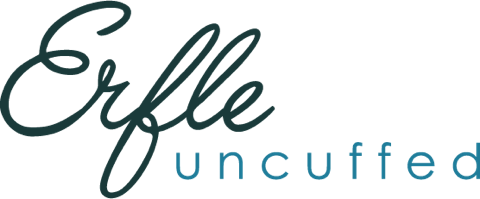Classrooms of Mediocrity
American schools spend an awful lot of time focusing on student deficiencies. In our zeal to leave no child behind, we concentrate our resources on those who have lower than average test scores in reading, math or science, while doing little to advance students’ average or above average abilities. This lopsided take on a one-size-fits-all education plan creates classrooms of conformity rather than schoolrooms of creativity.
This past weekend, I had the opportunity to listen to and speak with learning disabled students and LD experts at the Parents Education Network EdRev conference in San Francisco. The conference was meant to showcase the gifts of learning disabled students while acknowledging the challenges.
It didn’t take long to understand how difficult it is for LD students to thrive in traditional academic settings. In watching an advanced screening of an HBO documentary on dyslexia, most of the adults interviewed in the film became quite emotional when speaking about their experiences in school. The shame of having a learning disability and the feelings of failure that went with it were overwhelming.
But the film also pointed out the advantages of a dyslexic brain and how the same neurological differences that make it tough to decode letters and sounds can create ‘giftedness’ in other areas. The individuals once referred to as stupid or incapable became successful entrepreneurs and world-renowned artists and scientists.
As the mother of a dyslexic son, I found the film both heartbreaking and encouraging. I’m aware, as stated in the film, that reading ability has no correlation with intelligence. Unfortunately, many of our educators still subscribe to the false notion that reading predicts future success. And so instead of embracing differences and holding them up as important and valued, we judge our learning disabled students based on outdated models of education. We dilute the uniqueness of these brains and seek generalization instead of specialization.
An example of that phenomenon was the keynote speaker at the conference, Dr. L. Todd Rose. Dr. Rose ended his high school career with a 0.9 G.P.A. but is now the co-chair of the Mind, Brain and Education Institute at Harvard. His dramatic turnaround wasn’t because of a magic pill but rather because he flipped the coin on his learning disability. The parts of his ADHD that had made sitting through classes and holding down jobs difficult was refocused. Instead of trying to eliminate his impulsiveness and the boredom that accompanied it, he channeled it into creativity and action. He used the same variability that caused failure in high school to create success in his career.
The idea of flipping the coin, of using unique variability to create success, was repeated by the panel of current students who spoke after the film. The dyslexic students, wearing t-shirts saying, “Stand Up, Speak Out” stressed the importance of accommodation over remediation. Yes, additional instruction is important and needed, but no amount of tutoring will change the dyslexic brain into that of the non-dyslexic. They stressed that just as one would accommodate the physically disabled, so too should we accommodate the learning disabled.
We have the capability to use technology to help design programs specific to different learning styles and abilities. But we need to couple those resources with the desire to make change. We need to radically alter the way we view our education so every child has the ability to use his/her inborn talents to the fullest extent.
As this country struggles to compete with the rest of the world, we would serve our students best if we made significant changes to our outdated educational system. Instead of requiring students to learn in a highly structured environment at a predetermined pace, we should encourage individualized instruction that allows for quicker advancement in subjects of strength while targeting specific interventions in areas of need.
A couple of interesting websites that model this type of educational format include CAST: Center for Applied Special Technology and the Khan Academy. CAST uses multimedia technology to help the learning disabled while the Khan Academy uses online video tutorials to teach math, science and history at an individualized pace. Both are worth checking out.
Currently, we evaluate our schools, students and teachers on the results of age-based tests in reading, math and science. We appropriate enormous amounts of money for standardized testing that effectively eliminates curiosity and ingenuity and encourages mediocrity. If we wish to change this model, we need to become vocal critics of it, questioning and demanding changes to AIMS (Arizona’s Institute to Measure Standards) and the No Child Left Behind Act and educating ourselves on the alternatives.
If we flip the coin on education, it is possible to create classrooms worthy of all our students. If we stand up and speak out, we can join the ranks of our inspired youth and create a real education revolution.
